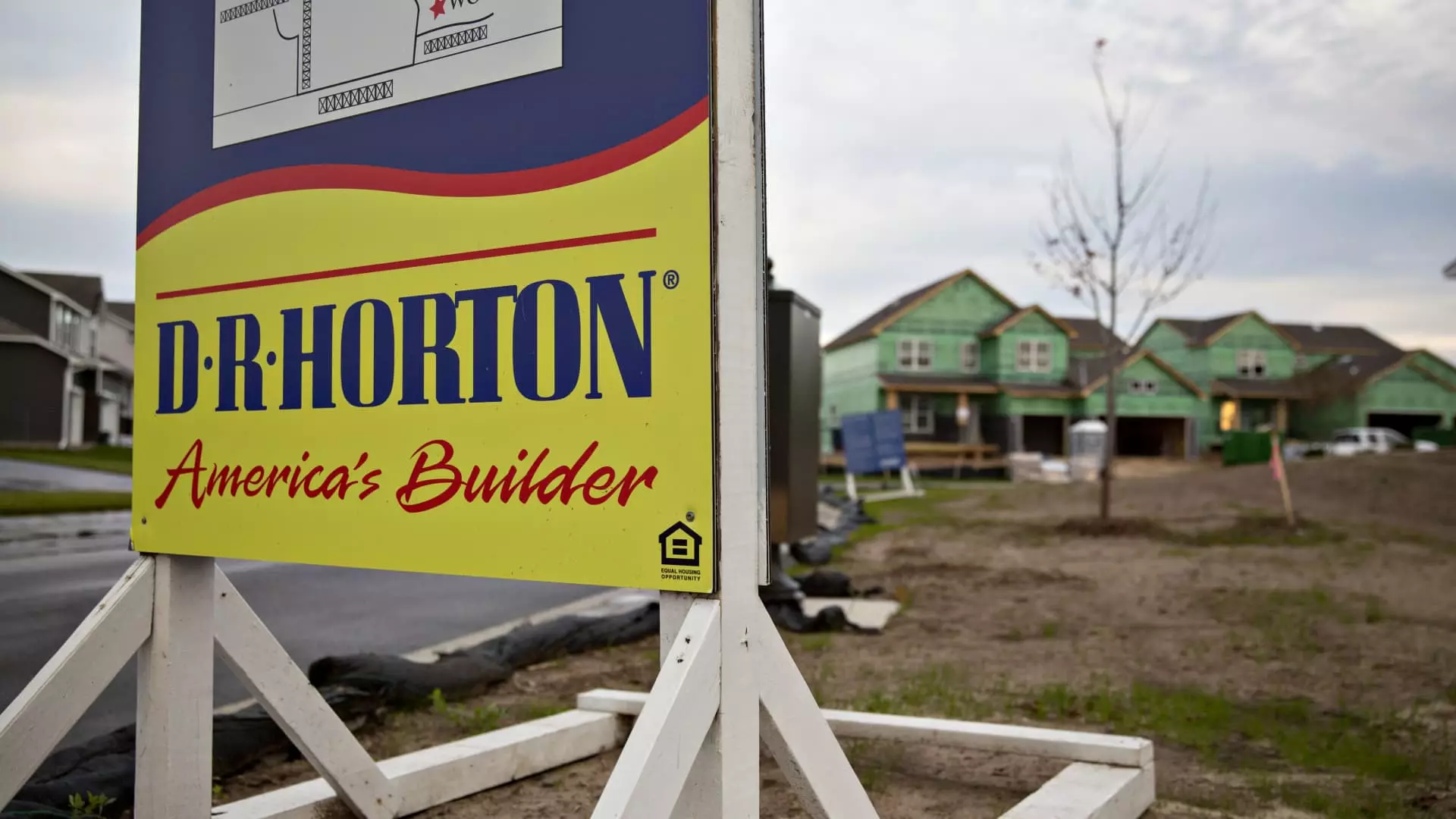High Stakes in Housing: The Impacts of Interest Rate Fluctuations on Homebuilders

The latest financial disclosures from D.R. Horton, one of the largest homebuilders in the United States, signal troubling undercurrents for consumers and the broader economy amid ongoing interest rate challenges. Following the release of quarterly earnings that fell short of Wall Street expectations, D.R. Horton’s stock plummeted by 11%. This drastic movement highlights a growing concern in the real estate market as fluctuating interest rates continue to affect consumer behavior. The company’s CEO, David Auld, pointed out the significant impact of interest rate volatility, noting that it is keeping many potential homebuyers from making purchases, which could have long-term implications for both housing availability and pricing.
As mortgage rates hover around 7%—a notable decrease from their peak of 8% last year—homebuyers remain wary. Auld’s statement reflects a common sentiment among consumers who are now anticipating even lower mortgage rates in 2025. This expectation further discourages immediate purchasing decisions, creating a stagnation in the housing market. Current economic conditions paint a complex picture; while some rates have decreased, the broader volatility surrounding inflation and interest rate hikes creates uncertainty. As homebuyers bide their time, the risk of decreased transactions looms heavy over the housing segment.
At the heart of rising mortgage rates are the spiking yields of the 10-year Treasury note, which have been influenced by a combination of strong economic data and ambiguous signals regarding the Federal Reserve’s interest rate strategies. Despite recent rate cuts initiated by the Fed, the effects do not appear to be trickling down efficiently to homebuyers. The inverse relationship between bond yields and prices illustrates a fundamental issue: as yields climb, borrowing costs surge, further alienating potential homebuyers from the market.
D.R. Horton’s projections for the upcoming fiscal year, estimating revenues between $36 billion and $37.5 billion, fall below the consensus expectations of $38.91 billion from industry analysts. Such projections reveal a deeper issue of market confidence and the viability of price growth in a tight housing market. The recent earnings report detailed earnings of $3.92 per share against analysts’ predictions of $4.17, paired with revenues that likewise missed expectations. These results not only dented their stock but rippled through the shares of other homebuilders such as Toll Brothers and Pulte Group, which also experienced declines of around 4%.
The ramifications of these trends extend beyond the homebuilding industry. The S&P Homebuilders ETF (XHB) recorded a 3% loss, reflecting investor anxiety about the housing market’s stability. Simultaneously, major home improvement retailers such as Home Depot and Lowe’s saw their shares slip by approximately 2% as the overall demand for home improvement projects wanes. As consumers hesitate to enter the housing market, the ripple effects of this caution could stifle economic growth.
The current landscape for D.R. Horton and other homebuilders illustrates the broader challenges created by interest rate fluctuations. With consumer sentiment shifting towards a wait-and-see approach and economic indicators providing mixed signals, the future of the housing market remains uncertain, creating a precarious environment for builders and buyers alike.





